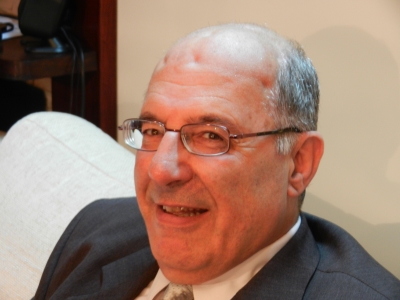On this occasion the Serbian side acted with uncharacteristic cleverness and savoir faire, and all three meetings were filmed. As a result, we have a video record of what transpired and was discussed by the participants, as well as an insight into the atmosphere in which these sessions were conducted.
The central issue discussed at these Hotel Fontana meetings is also one of the central issues of the prosecution's Srebrenica case. ICTY prosecution charges that at these Hotel Fontana meetings the Serbian military and political leadership took decisions that led to the commission of genocide on captured Srebrenica Muslims. The meetings are also used by the prosecution as evidence of the Serb leadership's plan to ethnically cleanse Srebrenica enclave. That was to be achieved by deporting its civilian population, consisting mainly of women, elderly, and children, after the departure of able-bodied men of the Muslim army's 28th Division on a trek through the mountains in order to reach Tuzla.
The fundamental question is: How do these claims stack up against the video record of these meetings?
The first and probably most significant of these meetings took place on July 11 at Hotel Fontana, around 9 p.m. according to Dutchbat commander Col. Karremans in his courtroom testimony on June 25 2004. While other officials from both sides were present, the most important participants were Karremans and the Serbian commander, Gen. Ratko MladiÄ"�.
The video record of the first Hotel Fontana meeting can be viewed here:
The following are the highlights of the discussion between Karremans and MladiÄ"�, with minutes and seconds in the video being indicated:
11:56 - Karremans reports to MladiÄ"� that the "-BH command" requested he meet with MladiÄ"� in order to "negotiate the withdrawal" of refugees from PotoÄ �ari.
12:24 - Karremans informs MladiÄ"� that some of the English-speaking Muslim women in the Dutchbat compound were asking Dutch soldiers when the buses would be arriving to evacuate them.
16:00 - Karremans declares to MladiÄ"� that he wants the civilian population to be assisted to leave the enclave and go to the destination of their choice.
16:20 - Karremans elaborates by stating that most would like to go to Tuzla.
17:30 - MladiÄ"� responds to Karremans' remarks by stating that all communities had a good life together until the Muslims began to listen to the "-Western political mafia."
20:35 - Karremans states that Gen. Nikolai, chief of staff to UNPROFOR commander Janvier in Sarajevo, was asking for the "-release of the civilian population."
23:08 - Karremans reiterates, speaking on behalf of the civilian population of Srebrenica, that "-everyone would like to leave the enclave."
28:05 - General MladiÄ"� declares that he "-would like to help" and states that the target of his military operation is neither UNPROFOR nor the Muslim civilian population.
It should be noted also that at 7:24 minutes Karremans states that during the preceeding several months ARBiH had demanded of Dutchbat to collect weapons from the deposit set up under UNPROFOR control under the 1993 demilitarization agreement, but that each time Karremans had refused to accede to this request. It is noteworthy that on July 6 1995, when the Serbian attack was initiated, Dutchbat offered to the 28th Division access to the weapons depot, but it was they who refused (Dutchbat Debriefing, par. 3.9, p. 22) The possible significance of this particular sequence of events was that during the spring of 1995, when according to Karremans the 28th Division had made repeated requests to collect the stored weapons, it was also conducting frequent military raids on Serb targets outside the enclave. By the time the Serbian attack commenced on July 6, the political priority had changed; it was to not offer resistance and to feign defenselessness in the face of aggression.
(Note: You can view every article as one long page if you sign up as an Advocate Member, or higher).





